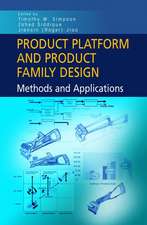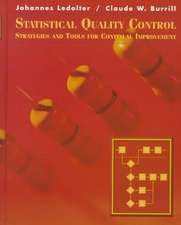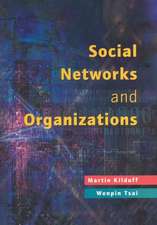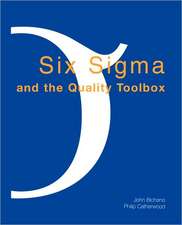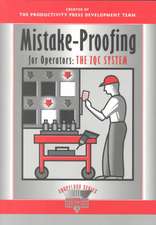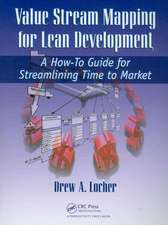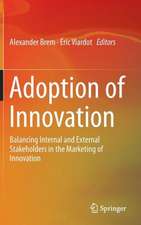Agent-Based Simulation of Organizational Behavior: New Frontiers of Social Science Research
Editat de Davide Secchi, Martin Neumannen Limba Engleză Paperback – 23 aug 2016
ABM is a particular and advanced type of computer simulation where the focus of modeling shifts to the agent rather than to the system. This allows for complex and more realistic representations of reality, facilitating an innovative socio-cognitive perspective on organizational studies. The editors and contributing authors claim that the use of ABM may dramatically expand our understanding of human behavior in organizations. This is made possible because of (a) the computational power made available by technological advancements, (b) the relative ease of the programming, (c) the ability to borrow simulation practices from other disciplines, and (d) the ability to demonstrate how the ABM approach clearly enables a socio-cognitive perspective on organizational complexity.
Showcasing contributions from academics and researchers of various backgrounds and discipline, this volumes provides a global, interdisciplinary perspective.
| Toate formatele și edițiile | Preț | Express |
|---|---|---|
| Paperback (1) | 643.34 lei 6-8 săpt. | |
| Springer International Publishing – 23 aug 2016 | 643.34 lei 6-8 săpt. | |
| Hardback (1) | 659.53 lei 3-5 săpt. | |
| Springer International Publishing – 11 sep 2015 | 659.53 lei 3-5 săpt. |
Preț: 643.34 lei
Preț vechi: 756.86 lei
-15% Nou
Puncte Express: 965
Preț estimativ în valută:
123.10€ • 128.87$ • 101.86£
123.10€ • 128.87$ • 101.86£
Carte tipărită la comandă
Livrare economică 05-19 aprilie
Preluare comenzi: 021 569.72.76
Specificații
ISBN-13: 9783319366319
ISBN-10: 3319366319
Pagini: 348
Ilustrații: VIII, 348 p.
Dimensiuni: 155 x 235 mm
Greutate: 0.5 kg
Ediția:Softcover reprint of the original 1st ed. 2016
Editura: Springer International Publishing
Colecția Springer
Locul publicării:Cham, Switzerland
ISBN-10: 3319366319
Pagini: 348
Ilustrații: VIII, 348 p.
Dimensiuni: 155 x 235 mm
Greutate: 0.5 kg
Ediția:Softcover reprint of the original 1st ed. 2016
Editura: Springer International Publishing
Colecția Springer
Locul publicării:Cham, Switzerland
Cuprins
Preface.- Chapter 1 Exploring the New Frontier.- Part I Perspectives.- Ch 2 Emergent Organizations.- Ch 3 Cognition beyond the body: Looking differently at ABM.- Part II Modeling Organizational Behavior.- Ch 4 The Effects of Disorganization on Goals and Problem Solving.- Ch 5 Constructing Agent-Based Models of Organizational Routines.- Ch 6 CoopNet: A Social, P2P-like Simulation Model to Explore Knowledge-Based Production Processes.- Ch 7 Conceptualizing and Modeling Multi-Level Organizational Co-Evolution.- Ch 8 Exploring Aspects of Coordination by Mutual Adjustment in Fluid Teams.- Ch 9 Boundary Conditions for the Emergence of "Docility".- Part III Philosophical and Methodological Perspectives on ABM.- Ch 10 Intervening via Chance-Seeking.- Ch 11 Exploring Social and Asocial Agency in Agent-Based Systems.- Ch 12 Towards nonlocal field-like social interactions.- Ch 13 Analytical approaches to Agent-Based Models.- Part IV Modeling Organized Crime and Other Macro-Aspects of Organizational Behavior.- Ch 14 Modeling Social Agency Using Diachronic Cognition: Learning from the Mafia.- Ch 15 Water Controversies between Conflict and Cooperation.- Ch 16 Open Innovation Networks and the Role of Intermediaries.
Textul de pe ultima copertă
The aim of this book is to demonstrate how Agent-Based Modelling (ABM) can be used to enhance the study of social agency, organizational behavior and organizational management. It derives from a workshop, sponsored by the Society for the Study of Artificial Intelligence and the Simulation of Behavior (AISB), held at Bournemouth University Business School in 2014 on “Modelling Organizational Behavior and Social Agency”. The contents of this book are divided into four themes: Perspectives, Modeling Organizational Behavior, Philosophical and Methodological Perspective, and Modeling Organized Crime and Macro-Organizational Phenomena.
ABM is a particular and advanced type of computer simulation where the focus of modeling shifts to the agent rather than to the system. This allows for complex and more realistic representations of reality, facilitating an innovative socio-cognitive perspective on organizational studies. The editors and contributing authors claim that the use of ABM may dramatically expand our understanding of human behavior in organizations. This is made possible because of (a) the computational power made available by technological advancements, (b) the relative ease of the programming, (c) the ability to borrow simulation practices from other disciplines, and (d) the ability to demonstrate how the ABM approach clearly enables a socio-cognitive perspective on organizational complexity.
Showcasing contributions from academics and researchers of various backgrounds and discipline, this volumes provides a global, interdisciplinary perspective.
ABM is a particular and advanced type of computer simulation where the focus of modeling shifts to the agent rather than to the system. This allows for complex and more realistic representations of reality, facilitating an innovative socio-cognitive perspective on organizational studies. The editors and contributing authors claim that the use of ABM may dramatically expand our understanding of human behavior in organizations. This is made possible because of (a) the computational power made available by technological advancements, (b) the relative ease of the programming, (c) the ability to borrow simulation practices from other disciplines, and (d) the ability to demonstrate how the ABM approach clearly enables a socio-cognitive perspective on organizational complexity.
Showcasing contributions from academics and researchers of various backgrounds and discipline, this volumes provides a global, interdisciplinary perspective.
Caracteristici
Demonstrates how Agent-Based Modelling (ABM) can be used to enhance the study of social agency, organizational behavior and organizational management Explores topics such as modeling organizational behavior, philosophy, methodology, macro-organization and modeling organized crime Includes contributions from academics and researchers of various backgrounds and disciplines providing a global, interdisciplinary perspective Includes supplementary material: sn.pub/extras


